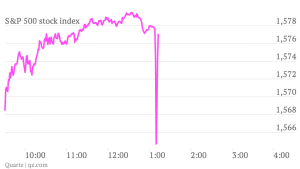The Washrooms are Equipped with Smoke Detectors: Corporate Responsibility Lessons from a Frequent Flyer
In this, the third in our series of Corporate Responsibility Lessons from a Frequent Flyer, we take a look at a more serious issue of corporate accountability. For our first post in this series, Don’t Leave Your Baggage Unattended, click here. For our second post in this series, Locate the Nearest Exit, click here.
If you’re a frequent flyer like me, you’ll know that a standard feature of the onboard safety briefing is that smoking is not permitted and the washrooms are equipped with smoke detectors.
 The days of smoke-filled cabins on airplanes are, thankfully, a distant memory, but the urgency of the no-smoking warning remains, reminding would-be transgressors that even in the privacy of the washroom, illicit behaviour will be detected. Corporate actors would be similarly well warned that technology and social media are increasingly the detectors and disclosers of illicit behaviour, wherever it may occur.
The days of smoke-filled cabins on airplanes are, thankfully, a distant memory, but the urgency of the no-smoking warning remains, reminding would-be transgressors that even in the privacy of the washroom, illicit behaviour will be detected. Corporate actors would be similarly well warned that technology and social media are increasingly the detectors and disclosers of illicit behaviour, wherever it may occur.
In my view, this is a Good Thing; sunlight, as Justice Brandeis once opined, is the best disinfectant. Moreover, the boundaries are blurring between a corporation’s accountability and an individual’s responsibility for inappropriate behaviour.
As if we needed another example of this, we can point to the recent experience of Centerplate’s now-ex-CEO, Desmond Hague.
In late August, Mr. Hague was caught on video abusing a dog in an elevator. Here’s a link to that video [warning: some viewers may find this video disturbing].
Centerplate is a food services company catering to sports and other entertainment venues. It doesn’t matter that their business has nothing to do with animal welfare. The behaviour of its CEO was so morally offensive that the company would be tarred with the same brush if it did not demonstrate its intolerance. Faced with widespread outrage on social and mainstream media, the company expressed its concern, put Mr. Hague on probation, and required him to serve 1,000 hours of community service and make a donation to establish an animal welfare foundation. That wasn’t enough, however. Despite the CEO’s contrite apology, he was forced to resign when the scandal continued to grow.
Also in early September, a far more disturbing incident was caught on video, again by an elevator surveillance camera: football star Ray Rice assaulting his then fiancée, Janay Palmer. The public release of the video led the Baltimore Ravens football club to terminate Rice’s contract, and he was suspended indefinitely from the National Football League. In the weeks since, however, there have been many questions about who knew what about the incident and when, and much criticism about the adequacy and timeliness of the actions taken by the Ravens and the NFL, particularly since both organizations knew about the incident from a previously released video.
Both of these cases highlight the need for organizations to engage employees proactively regarding behavioural expectations both within and outside the workplace, to make clear the consequences of behaviour that doesn’t meet these expectations, and to have systems in place to ensure a timely and appropriate response when incidents occur.
Although we surely cannot mandate values, it is possible – and increasingly necessary – to foster a culture of responsibility that seeks in the best case to prevent inappropriate behaviour and in the worst case to ensure swift action when inappropriate behaviour comes to light.
Where there’s smoke, there’s likely fire. Best not to wait for the smoke alarm to go off to figure out where the fire extinguisher is…
For more on the stories that prompted this post:
Click here for coverage in the Globe and Mail.
Click here for coverage in the New York Daily News.


